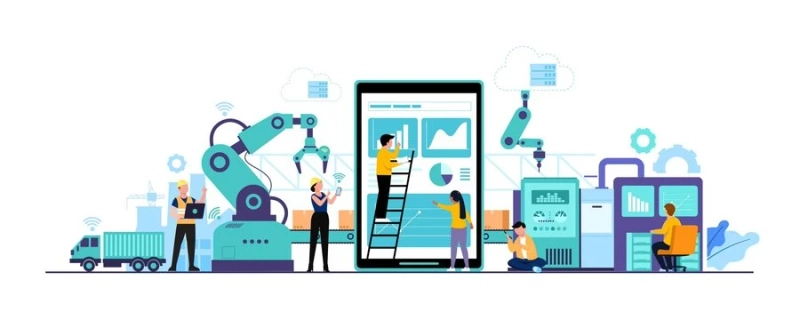Unlocking Innovation: Exploring AI Software Development Use Cases
Artificial Intelligence (AI) has emerged as a transformative force reshaping industries and revolutionizing business operations. From automation to predictive analytics, AI software development offers a plethora of use cases that cater to diverse business needs. Let's delve into some of the most compelling use cases where AI can drive innovation and unlock new possibilities.
Predictive Analytics
Predictive analytics harnesses AI algorithms to analyze historical data and forecast future trends, outcomes, and behaviors. Businesses can leverage predictive analytics to anticipate customer preferences, optimize inventory management, predict equipment failures, and mitigate risks. By identifying patterns and trends hidden within vast datasets, predictive analytics empowers businesses to make proactive decisions and stay ahead of the curve.
Natural Language Processing (NLP)
Natural Language Processing (NLP) empowers computers to comprehend, interpret, and produce human language. NLP use cases abound across various industries, including customer service, healthcare, finance, and marketing. Businesses can deploy NLP-powered chatbots and virtual assistants to automate customer interactions, analyze sentiment in social media conversations, extract insights from unstructured text data, and enhance communication and engagement with customers.
Computer Vision
Computer vision empowers machines to decipher and scrutinize visual data derived from images and videos. This technology finds applications in areas such as image recognition, object detection, facial recognition, and augmented reality. Businesses can leverage computer vision to automate quality control processes in manufacturing, enhance security surveillance systems, develop immersive virtual shopping experiences, and enable autonomous vehicles to perceive and navigate their surroundings.
Recommendation Systems
Recommendation systems use AI algorithms to analyze user preferences and behavior and provide personalized recommendations. These systems power recommendation engines in e-commerce platforms, streaming services, social media platforms, and content websites. By leveraging recommendation systems, businesses can enhance user engagement, increase sales conversions, and foster customer loyalty by delivering relevant and targeted content, products, and services to their audience.
Robotic Process Automation (RPA)
Robotic Process Automation (RPA) automates repetitive and rule-based tasks traditionally performed by humans. RPA bots can mimic human actions within digital systems, such as entering data, processing transactions, and generating reports. Businesses can deploy RPA solutions to streamline back-office operations, accelerate workflow processes, reduce errors, and free up human resources to focus on higher-value tasks that require creativity and critical thinking.
Healthcare Diagnostics and Imaging
In the healthcare industry, AI software development is revolutionizing diagnostics and medical imaging. AI algorithms can analyze medical images such as X-rays, MRIs, and CT scans to assist radiologists in detecting abnormalities and diagnosing diseases earlier and more accurately. AI-powered diagnostic tools can help healthcare providers improve patient outcomes, reduce diagnostic errors, and optimize treatment plans through personalized medicine approaches.
Fraud Detection and Cybersecurity
AI plays a crucial role in detecting and mitigating fraud and cybersecurity threats in today's digital landscape. Fraud detection systems, powered by AI, scrutinize extensive volumes of transactional data to pinpoint aberrant patterns and irregularities that signal potential fraudulent behavior. Similarly, AI-driven cybersecurity solutions leverage machine learning algorithms to detect and respond to cyber threats in real time, safeguarding sensitive data and protecting businesses from cyber attacks and breaches.
Supply Chain Optimization
AI software development offers innovative solutions for optimizing supply chain management processes. AI algorithms can analyze historical and real-time data to optimize inventory levels, predict demand fluctuations, optimize logistics and transportation routes, and mitigate supply chain disruptions. By harnessing AI-driven supply chain optimization solutions, businesses can improve operational efficiency, reduce costs, and enhance overall supply chain resilience.
Conclusion
In conclusion, AI software development presents a myriad of use cases that empower businesses to innovate, optimize operations, and deliver enhanced experiences to their customers. Whether it's predictive analytics, natural language processing, computer vision, recommendation systems, robotic process automation, healthcare diagnostics, fraud detection, cybersecurity, or supply chain optimization, AI technologies offer limitless possibilities for fostering growth and securing a competitive edge in the contemporary digital marketplace. By embracing AI software development, businesses can unlock new levels of efficiency, agility, and innovation to thrive in an increasingly AI-driven world.
Further, click here to read the details on Fintech Development Trends Redefining Finance in 2024-2025



